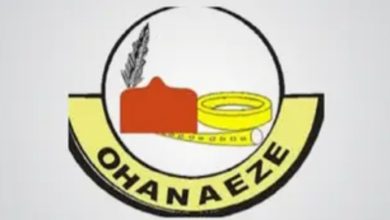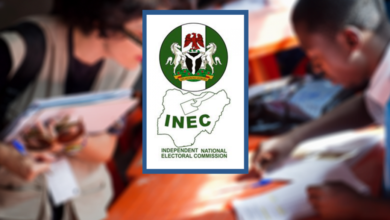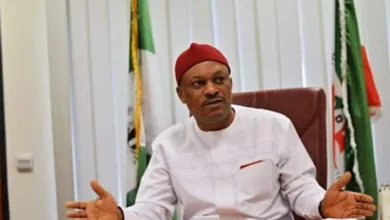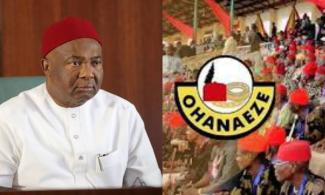FG Tracks 96 Financiers of Terrorism, 424 Associates, 123 Companies, 33 Bureaux de Change
Identifies N3.9 Trillion VAT; N3.7trillion Withholding Tax's Scam

By Rex Enabulele/Abuja
The federal government through the Nigerian Financial Intelligence Unit (NFIU) has between 2020 and 2021, tracked 96 financiers of terrorism in Nigeria, 424 associates of the financiers, involvement of about 123 companies, and 33 bureaux de change, while also identifying 26 suspected bandits/kidnappers and seven co-conspirators.
The Minister of Information and Culture, Alhaji Lai Mohammed, who revealed this in Abuja on Thursday, while explaining efforts by President Muhammadu Buhari Administration to fight corruption and terrorism, also stated that the analysis by the NFIU has resulted in the arrest of 45 suspects, who will soon face prosecution and seizure of assets.
According to him, “Also, from its analysis of tax evasion and tax avoidance linked to corruption, NFIU has identified N3.90trillion VAT and N3.7trillion in Withholding Tax due to the Government.
“NFIU has also sent 1,165 intelligence reports on cases of corruption, money laundering and other serious offences to 27 domestic agencies for investigation, prosecution and asset recovery.
“On terrorism financing, NFIU had intelligence exchanges on Boko Haram, ISWAP, banditry, kidnapping and others with 19 countries. During the same period, 2020-2021, the organization returned fraudulently-obtained funds totalling US$103,722,102.83, 3,000 Pound Sterling; 7,695 Singapore Dollar and 1,091 Euros to 11 countries of victims who came into the country.”
The minister explained that the federal government has deployed a plethora of tools, including the Money Laundering Act, 2004; the EFCC Act, 2004; the ICPC Act, 2000; the Department of State Services (DSS) and the NFIU to deal with the issue of corruption, money laundering and terror financing.
He pointed out that the ongoing harmonization of Bank Verification Numbers BVN) with National Identification Numbers (NIN) is also a means of tracking the flow of funds within Nigeria and, by extension, tackling terror financing.
Alhaji Mohammed stated that one of the three major policy planks of Buhari administration is the fight against corruption, with the others being to tackle insecurity and also to revamp the economy.
“It is common knowledge that one of the most difficult tasks for any government is to fight corruption, because when you fight corruption, corruption will fight you back!
“This explains why naysayers have continued to belittle or dismiss the administration’s anti-corruption efforts. Let me say here that fighting corruption is a marathon, and never a sprint. Also, investigations, arrests, prosecutions and asset forfeiture – which are the immediate, visible indices by which many measure successes in tackling corruption, constitute – as important as they are – just a part of the strategies to combat corruption,” he claimed.
Explaining Buhari administration’s policy strategy, the minister said that the federal government has taken bold measures to streamline cumbersome bureaucratic processes in the implementation of government policies, check corrupt practices and ensure accountability in the implementation, as well as delivery of these policies.
Read Also: Manchester Youngster, Anthony Elanga Rises to Prominence at Old Trafford
The areas of reform, according to him, include the Treasury Single Account (TSA), Integrated Personnel and Payroll Information System (IPPIS), Petroleum Industry Act, Financial Autonomy for State Legislature and Judiciary (2020), Whistle-Blower Policy, Assets Recovery, Justice and Law reforms, Nigeria’s membership of the Open Government Partnership.
“Other instruments at the disposal of the federal government to track, trace and stop the flow of illicit funds used in financing terrorist activities within Nigeria, among others.
“For those who may say that some of these reforms, like the TSA, predate this Administration, our response is that what’s the use of a policy that is not implemented? This administration has implemented these reforms with fidelity, and the reforms have made a huge impact in preventing corruption,” he added.
On the TSA, the minister claimed the system has now been implemented in more than 90 percent of all Federal MDAs and it has resulted in the consolidation of more than 17,000 bank accounts previously spread across Deposit Money Banks in the country, and monthly savings of an average of N4 billion in bank charges.
Highlighting the much more-visible activities of some of the various anti-corruption agencies, he said that in 2021 alone, the EFCC secured a total of 2,220 convictions – representing a 127 percent increase in the number of convictions (976) recorded in 2020, and a far cry from the 195 convictions secured in 2016, the 189 in 2017, the 312 convictions in 2018, and the 1,280 recorded in 2019.
On Monetary recoveries, the federal government revealed that in 2021 alone, the EFCC recovered a total monetary amount of N152,088,698,751.64; 1,182,519.75 Pounds Sterling, 50 Emirati Dirham, 1,723,310 Saudi Riyal, 1,900 South African Rand; US$386,220,202.85; 156,246.76 Euros; 1,400 Canadian Dollars; 5.36957319 Bitcoin and 0.09012 Ethereum.
He also explained the ICPC’s pivotal role in bringing about structural changes in the operations of the government, especially regarding improvements in MDAs budget utilization, better value for money, improved project completion, service delivery and higher level of anti-corruption awareness.
The minister added, “Between 2019 and 2021, ICPC traced 2,000 projects worth over N300 billion. During the same period, 326 contractors of abandoned projects across the six geo-political zones were forced by the Commission to return to site to complete projects worth N32.183 billion.
“Also, the ICPC’s Assets Tracing, Recovery and Management (ATRM) projected to the recovery of cash totalling N34.346 billion and US$1.62 million between 2019 and 2021.
“Also, the Commission’s System Study and Review of personnel and capital votes of MDAs resulted in savings of N261 billion to the government between 2019 and 2021. ICPC has also secured 66 convictions from the 243 cases it filed in court during the same three-year period.”
The federal government also challenged all Nigerians to join in the fight against corruption, saying it is not a fight for the government alone.




